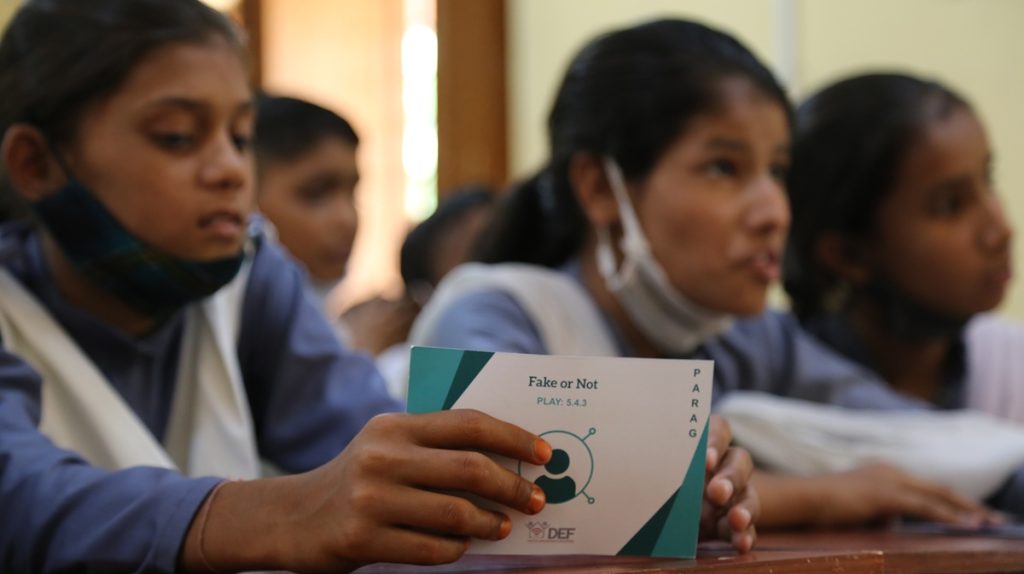

This article is a part of a special series of articles on women’s role in the digital development of India.
The role of women in care work and reproductive labour has been discussed extensively in popular media and critical feminist scholarship. In a rapidly digitalising country, patriarchy has successfully penetrated the digital realms, reinforcing divides that are not only spatial between the rural and the urban but starkly gendered, too. As per the ASER report of 2023, the proportion of females with digital literacy was 89.8% while the same for males was 94.7%.
We at DEF, have been celebrating fierce rural women who serve as digital catalysts for making communities digitally literate and economically self-independent. These women have been pivotal in bringing digital transformation to rural parts of the country, backed by DEF’s strategic literacy programs and initiatives. Serving as both educators and beneficiaries, their role is to empower themselves while significantly contributing to enhancing gender equality in the country’s data-dark regions.

Digital Literacy Programs have elevated women to the role of community ambassadors, transforming them from hesitant learners to confident trainers and establishing local learning centers where they impart skilling programs on functional aspects of Digital Literacy and Digital Financial Literacy, revolutionising rural women’s economic participation and reimagining traditional financing systems through effective use of digital payments, online banking, digital book-keeping etc. This has resulted in a ripple effect of empowerment among the village elderly, marginalised social groups, PwDs and in particular, for rural micro-entrepreneurs with the establishment of online marketplaces for their products.
Digital Learning Toolkits like the START perfectly demonstrate the efficacy of involving women trainers to train rural women who are also first-generation technology users on aspects of functional digital literacy (basics of ICT usage, digital applications, media and information literacy) through hands-on training and workshops in geographically remote and information-poor regions of the country.
Through the STEM for Girls Program, girls in rural government schools and villages have broken gendered stereotypes in the field of education by accessing localized STEM educational content to explore Science, computational thinking, coding, and problem-solving skills.

These initiatives have proved to catalyse a transformative feedback loop. As first-generation beneficiaries master digital tools and train a future pool of changemakers, these learnings are integrated into a contextually meaningful and sustainable manner. In short, rural women are not simply receiving digital knowledge—they’re translating knowledge into a repository of community resources, thereby generating a domino effect of educational revolution in rural areas of the country.
This Women’s Day, let us strive for a gender-inclusive country where no woman lags in her quest for digital education. Let us build a force of digitally literate rural wonder women who smash the evils of gendered digital divide and break the shackles of patriarchy.










